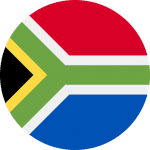Intergenerational Dialogues for Accountability






To support the implementation of the Action Coalitions commitments at national levels, as well as engage African youth in the 5-year journey with the commitments of the international community of $40 billion, Nalafem partnered with youth organisations to convene dialogues in the communities.

Nalafem IGD For Accountability – South Africa
Centre for Socio Economic Transformation is a youth-led organization operating in South Africa and Zimbabwe, with the aim of fostering education, civic engagement, collaboration and partnerships, the development of viable communities and increasing scientific information and local knowledge, while promoting equity and equality for women, girls and vulnerable groups of the society

Welcome Remarks from Pamela Munemo, Founder and Director of Centre for Socio Economic Transformation highlighted the importance of everyone being responsible for the national implementation of the Action Coalition commitments of South Africa.
The dialogue continued with a discussion with Councillor Melanie Brauteseth in eThekwini, Councillor Tembe Mmabatho and Councillor Khosi Mdletshe. The three councillors emphasized the need to create an environment that educates women. Most women and girls are not aware of the commitments made by the government, which makes the role of women at grassroots level important to create platforms and opportunities

Keynote Remarks from her Worship, Mayor of Ray Nkonyeni Municipality, Nomusa Mqwebu “As a female leader, I must look after my community and make sure they get what they need. I am a mayor who wants to see young people and women growing. When women are given opportunities, they exhaust them and do great work. Women shouldn’t be afraid to take a position of power. Let’s work together as women and help our communities and youth”

The experience of hosting the NalaFem IGD in South Africa was so engaging and insightful. It also made people aware of the government’s commitment towards economic justice and rights and sparked conversations within our local municipalities. My biggest take away was that it’s not too late to turn things around and introduce women to male dominated industries. This whole process was very overwhelming and life changing. I’m excited to do more work and lives and move closer towards generation equality. I really appreciate the opportunity you afforded our organisation.
Centre for Socio Economic Transformation – South Africa
The outcomes and recommendations of the dialogue
